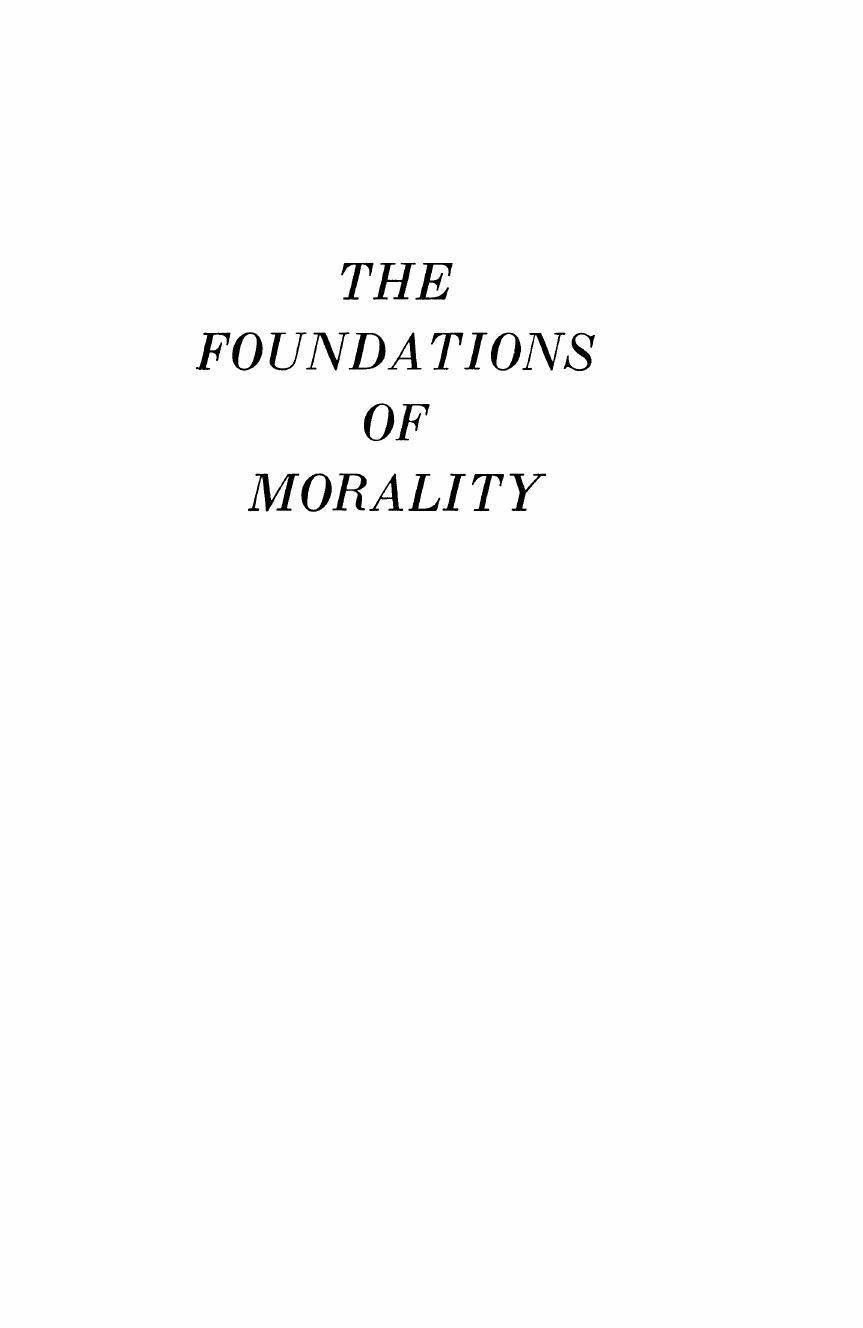The Foundations of Morality by Henry Hazlitt

Author:Henry Hazlitt [Henry Hazlitt]
Language: eng
Format: epub, mobi, pdf
ISBN: 978-1-57246-032-4
Publisher: Foundation for Economic Education
Published: 2010-03-26T16:00:00+00:00
4. The Choice of Vocation
But it is clear from the foregoing discussion that our special duties of relation and circumstance tend to merge with our special duties of vocation. Let us therefore return to our consideration of the latter.
Once we have adopted a vocation, we have either implicitly or explicitly adopted the special duties and risks that attend it. But this brings us to the problem: Have we any duty to adopt one vocation rather than another? Does each of us have one “true” vocation? Are we obliged to follow it? And how are we to determine what it is?
Obviously within a very wide range the choice of a trade or profession (when it is not more or less forced on us, as it often is) is a decision to be made mainly on economic grounds and on grounds of personal taste and preference. Within this wide range moral considerations cannot be said to enter. Yet the “duty” of choosing a profession has been called by one writer “the most important of all duties.”6 Certainly it is one of the most important decisions, and sometimes the most important, that each of us makes in his life. To what extent do or should moral considerations enter into this decision?
It is obvious that they must certainly enter in a negative sense. Nobody can excuse himself for a life of crime by declaring that he decided to adopt it because he thought this the quickest way to make a living, or because he had a special taste or talent for that kind of life. And even when we come to occupations that are within the law, many men will refuse even to consider going into a business that they feel to be ignoble or disreputable. Other men will feel that they have a positive “calling” or a positive duty to take up, say, the ministry or medicine.
We have said enough to indicate that the choice of a profession or vocation, though within certain limits it may be morally indifferent, must often involve a moral choice. Most of us recognize, in our judgments on our friends or on public figures, that a man owes a special obligation to his own gifts. Of the men whom we find throwing away their lives in drunkenness and dissipation, we condemn far more strongly a man whom we consider to be a great potential artist, scientist or writer, than one who has never shown any particular talent at all. We say of the former that he has sinned against his own talents. We are apt to be intolerant even of a mild laziness in him.
This may seem unjust and paradoxical. But common-sense morality is right in recognizing that special talents do impose special duties. For it recognizes that when such talents are unused, humanity loses far more than it does from the idleness or dissipation of mediocrities.
A man, then, has a duty to his own talents. He has a duty not to underestimate them, if this underestimate leads him to set his sights too low.
Download
The Foundations of Morality by Henry Hazlitt.mobi
The Foundations of Morality by Henry Hazlitt.pdf
This site does not store any files on its server. We only index and link to content provided by other sites. Please contact the content providers to delete copyright contents if any and email us, we'll remove relevant links or contents immediately.
The Art of Thinking Clearly by Rolf Dobelli(10487)
The 5 Love Languages: The Secret to Love That Lasts by Gary Chapman(9808)
Mindhunter: Inside the FBI's Elite Serial Crime Unit by John E. Douglas & Mark Olshaker(9339)
Becoming Supernatural by Dr. Joe Dispenza(8214)
Nudge - Improving Decisions about Health, Wealth, and Happiness by Thaler Sunstein(7706)
The Road Less Traveled by M. Scott Peck(7601)
Mastermind: How to Think Like Sherlock Holmes by Maria Konnikova(7342)
Enlightenment Now: The Case for Reason, Science, Humanism, and Progress by Steven Pinker(7311)
Win Bigly by Scott Adams(7194)
The Way of Zen by Alan W. Watts(6614)
Factfulness: Ten Reasons We're Wrong About the World – and Why Things Are Better Than You Think by Hans Rosling(4742)
The State of Affairs by Esther Perel(4719)
Gerald's Game by Stephen King(4653)
Man's Search for Meaning by Viktor Frankl(4604)
The Confidence Code by Katty Kay(4259)
Thinking in Bets by Annie Duke(4226)
The Healing Self by Deepak Chopra(3577)
Hidden Persuasion: 33 psychological influence techniques in advertising by Marc Andrews & Matthijs van Leeuwen & Rick van Baaren(3565)
The Worm at the Core by Sheldon Solomon(3486)
